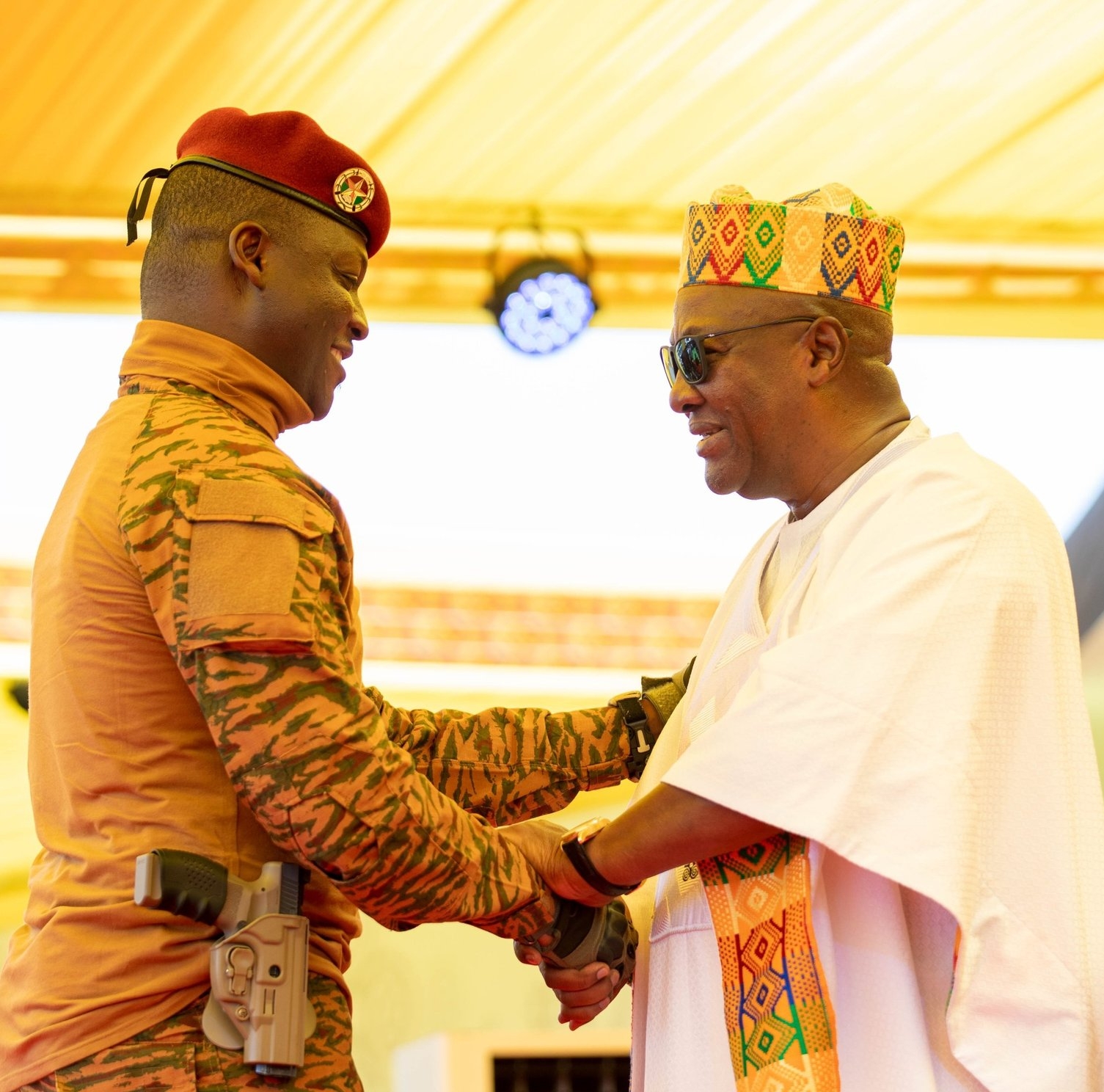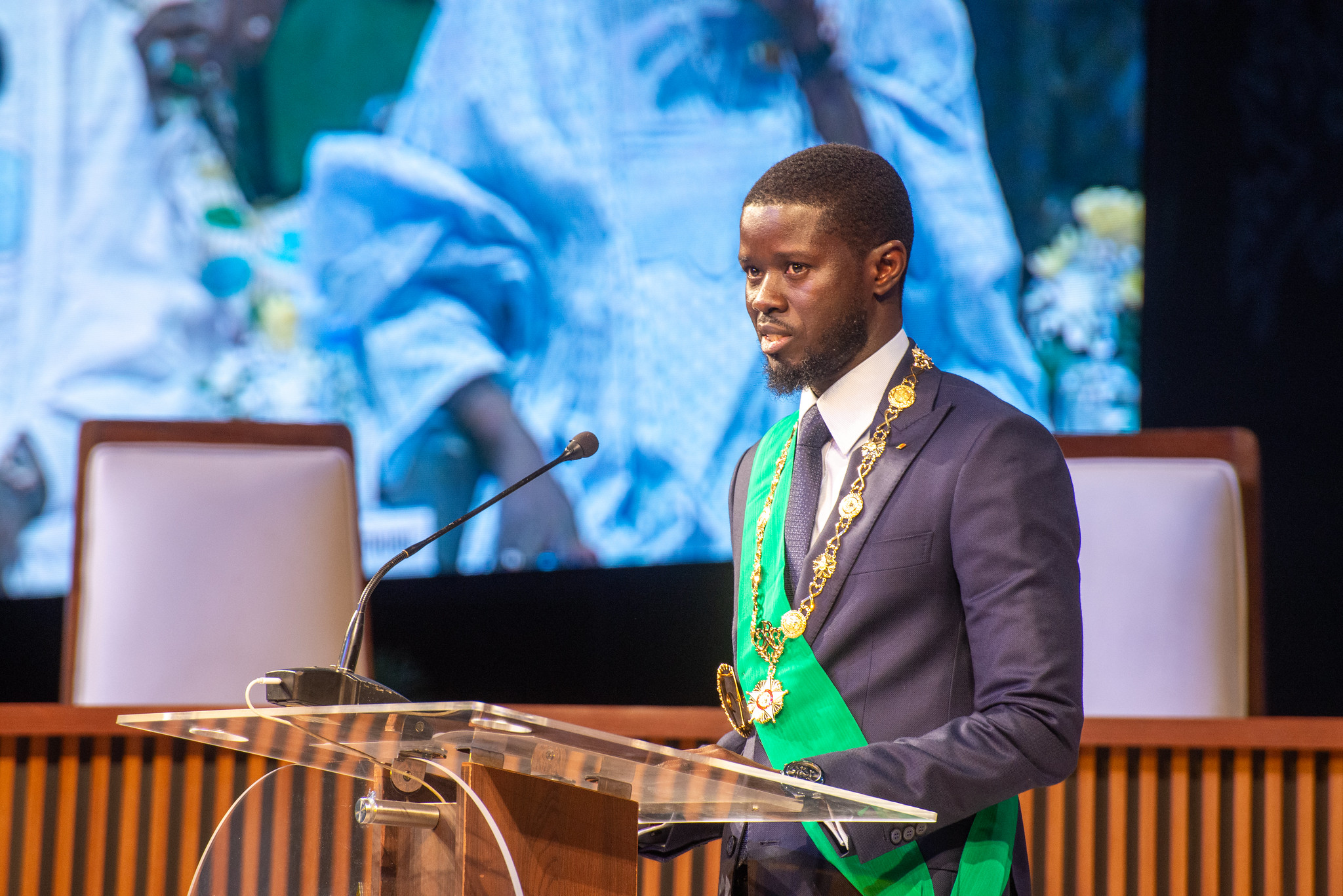Senegal’s political landscape is in flux as the country gears up for a presidential election on 25 February 2024. Macky Sall has been in office since 2012, having first been elected for a seven-year mandate, before amending the constitution in 2016, and then securing a second five-year term in 2019. Sall maintained ambiguity over his political ambitions, claiming his eligibility to seek a third mandate, before eventually abandoning those plans in July.
While Sall has agreed to stand down, the exclusion of his principal challenger, Ousmane Sonko, mirrors previous efforts to instrumentalise the judiciary in shaping the electoral landscape. In June, the firebrand Sonko was convicted to two years in prison for “corrupting youth” following a sexual assault case – a verdict which left him ineligible to contest the election and triggered a series of deadly protests. While Sonko claims to be the victim of a political conspiracy, and undertook a hunger strike in protest of his innocence, his party, PASTEF, continues to pursue efforts to secure his participation in the election.
Ultimately, the Constitutional Council will need to approve the final list of candidates for the election. It will have to sift through the submissions of some 200 presidential aspirants, which are currently working to obtain signatures from supporters across the land.
Sall’s hesitation and succession
Senegal is a regional outlier on many accounts. It is the only country in West Africa never to have experienced a coup d’état – even if a political crisis in 1961 driven by rivalry between founding president Léopold Sédar Senghor and prime minister Mamadou Dia has sometimes been characterised as an attempted putsch. Unlike elsewhere in West Africa, election results have been respected by contenders, and civil society has successfully mobilised to check the authority of incumbents. When President Abdoulaye Wade sought to circumvent constitutional term limits in 2012, it was the citizens’ movement Y’en a Marre which discredited his plans for a third term, paving the way for Sall to succeed Wade as president.
It is in this context that Sall’s wavering over a potential third time shocked observers in Senegal and abroad. A third mandate would not only have undermined his achievements as president – and as chair of the African Union – but also tarnished Senegal’s image as a bastion of democracy in West Africa. While Sall eventually abided by the letter and the spirit of the law, speculation over his intentions damaged national cohesion, exacerbated divisions stemming from Sonko’s prosecution.
Sall has endeavoured to manage his succession, convincing the ruling coalition Benno Bokk Yakaar (BBY) to anoint Prime Minister Amadou Ba as its candidate for the election. However, this fueled discontent within his party, the Alliance for the Republic (APR), resulting in a series of defections and forcing a government reshuffle. Ba, a technocratic former minister of finance, foreign minister, and tax inspector lacks Sall’s political clout or charisma. Indeed, he lost his constituency to the opposition in local elections in 2022, and failed to secure a clear majority for BBY in last year’s legislative polls.
What political space for the other candidates?
While Sonko may not be among the challengers, Ba faces a number of other campaign veterans. The ex-Mayor of Dakar, Khalifa Sall, and son of the former president, Karim Wade, both have the ability to mobilise voters and secure the sponsorships required to validate their candidacy. Like Sonko, the two men previously found themselves on the wrong side of the law in the wake of political vendettas with Sall, resulting in convictions on corruption-related charges. However, both have received presidential amnesties in a move seemingly designed to divide the opposition and draw voters away from Sonko. Other contenders include former prime minister Idrissa Seck and religious leader Serigne Moustapha Sy, who are unlikely to lead the field, but may receive enough votes to act as kingmakers. However, the real power brokers remain the highly influential Mouride brotherhood, which will be courted by all the candidates in the run up to the vote.
Opposition leaders are still far from uniting around a single candidate, owing to political egos and ideological divisions. On 11 November, however, former prime minister Aminata Touré aligned with Sonko’s PASTEF to form the Front for the Elections’ Inclusivity and Transparency (FITE). The FITE presents itself as a collective movement against democratic setbacks, including the president’s unilateral move to replace all 12 members of the Autonomous National Electoral Commission (CENA) on 4 November, after the body endorsed PASTEF’s appeal to the Election General Directorate (DGE) to proceed with efforts to collect the sponsorships required to validate Sonko’s candidacy.
These are set to be the first of a series of shifts in the political landscape as Senegal prepares for a historic election, which will be closely watched by Senegalese and the international community, given the high stakes for stability and democracy.
About the author
Alix Bouheddi is an Associate Consultant at Africa Practice, with a particular focus on energy, mining and geopolitical issues. Alix can be contacted at [email protected].
Proud to be BCorp. We are part of the global movement for an inclusive, equitable, and regenerative economic system. Learn more



